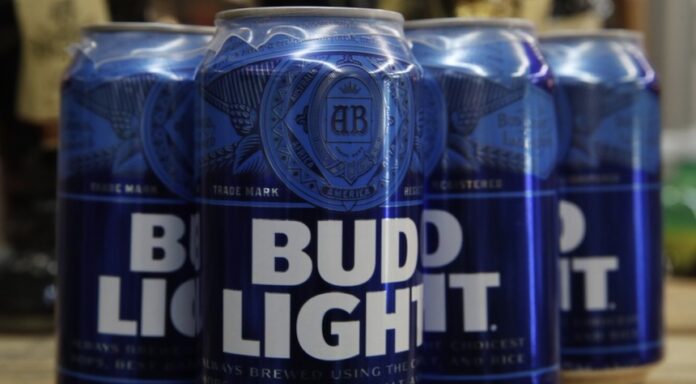Bud Light and Target have driven their companies off a cliff with their embracing of woke things that their customers do not agree with. Why would they do this when it’s not good for their bottom line? This doesn’t make much sense. Target’s CEO Brian Cornell claimed that the move was beneficial to their bottom line. However, it was not as it plunged their stock and their market value dropped by more than 13 billion dollars. Bud Light’s sales volume has dropped by almost 30%.
Anson Frericks, a former Anheuser-Busch executive, explained that it is not only the bottom line of the company they are looking at. This applies to more than just Bud Light or Target. Frericks talked to Fox’s Jesse Watters about the influence investment firms such as BlackRock and Vanguard have on this woke movement.
Fmr. Anheuser-Busch Exec. on How BlackRock, State Street, & Vanguard Force Companies to Go Woke
“Citizens should be able to decide these things through free and fair elections, not necessarily with a small group of asset managers and CEOs that are telling individuals how to live… pic.twitter.com/DmnZUVwJKO
— Chief Nerd (@TheChiefNerd) June 4, 2023
Frericks talks about both sides of the issue, including the liberal pressure on investment firms.
He said BlackRock Vanguard and State Street manage around $20 trillion of capital. They use their influence to push agenda politics that are being pushed by progressive legislators overseeing government pension fund funds from which the companies benefit.
California politicians have a large say in corporate governance and the political activities of the companies they invest in.
He said that “in California, for instance, they mandated large pension funds to divest from fossil fuels, oil, and gas.” Bill de Blasio [former] Mayor of New York did the same when he was in California.
“But they tell BlackRock State Street and Vanguard that if they want to manage their money they must commit to things such as ESG – diversity, equity, and inclusion – and adopt firmwide commitments which they then force on all of the major corporations in corporate America.”
It’s also important to consider the political pressure, as well as the ESG.
Frericks explains that the problem is how it affects companies. For example, in Atlanta, the Georgia Election Integrity Law was passed by the Georgia legislature.
“What was really crazy was that BlackRock, after the event, came out to say, ‘We are against this law.’ This is bad for democracy and bad for society. We believe this. And they then basically had companies like Coca-Cola and Delta cancel an All-Star Game. Heck, even Major League Baseball canceled one.
“But it’s also bad for democracy.” He said that citizens should have the right to make these decisions through fair and free elections and not by a few asset managers or CEOs telling them how to live.
Watters pointed to a part of the video below, which shows BlackRock CEO Larry Fink discussing “forced behaviors” in a New York Times panel from 2017. Even Twitter owner Elon Mohs called this “concerning”.
BlackRock CEO: “At BlackRock we are forcing behaviors… you have to force behaviors.” pic.twitter.com/2Q2H84GPC7
— TexasLindsay™ (@TexasLindsay_) June 4, 2023
Concerning
— Elon Musk (@elonmusk) June 5, 2023
Fink talked about hiring at the company.
You want to encourage people to apply for the job and give them a chance. When you start pushing politics, that goes beyond just encouraging people to apply.
It’s a much bigger issue than just the companies.
The boycotts are a great way to show that Americans want leftist politics, and they also want their beer and clothing to reflect this. This also shows, in a practical sense, that you need to change the backend that pushes this agenda – and it’s the Democrats – if you want to see this practice of injecting politics into the mix change. They laughed at the power of boycotts up until now. Now, they must take this seriously.




